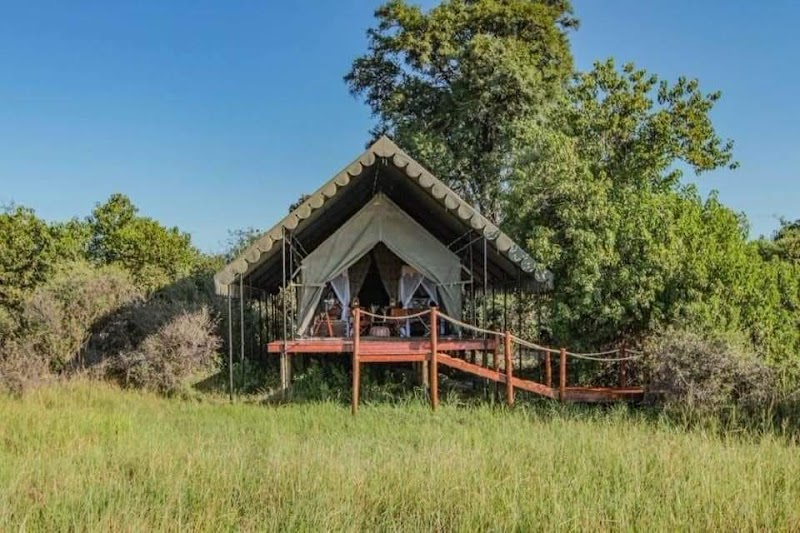
Glide Into Adventure: Experiencing the Mokoro Festival in Gweta, Botswana
The Mokoro Festival in Gweta invites adventurers of all levels to navigate Botswana's Okavango Delta by traditional dugout canoe. Experience cultural richness and wildlife encounters while paddling serene waterways, all within a practical framework to help you prepare for this unique waterborne journey.
Choose Lightweight, Water-Resistant Gear
Wear quick-drying clothes and bring water shoes or sturdy sandals to stay comfortable on wet terrain and during waterboarding.
Stay Hydrated Throughout the Day
Botswana's sun can be intense even in dry season, so carry enough water and sip regularly to avoid dehydration on the water.
Plan Your Paddling Around Cooler Hours
Mornings and late afternoons offer the best temperatures and lighting, reducing heat stress and enhancing your ability to spot wildlife.
Listen Intently to Guided Instructions
Even calm-looking water hides currents and sandbanks—following local guides' advice ensures safety and enriches your experience.
Glide Into Adventure: Experiencing the Mokoro Festival in Gweta, Botswana
Each year, as the waters around Botswana’s Okavango Delta swell with life, Gweta becomes a gateway to one of the most authentic waterborne festivals in Africa—the Mokoro Festival. Far from the usual tourist trails, this event invites adventurers to engage directly with traditional mokoro (dugout canoe) navigation, pitting human skill against the gentle yet insistent flow of the delta’s channels.
The festival spans several days, centered on Gweta’s village area, serving both as a cultural celebration and a hands-on excursion. The mokoro itself, carved from the mighty ebony tree, challenges paddlers to read the water’s movements—silent currents, hidden sandbanks, and narrow channels dare you to find the right path. The terrain is flat, but the water isn’t a passive setting; it pushes back, subtly asserting its presence. The longest routes cover approximately 15 kilometers along calm waterways lightly fringed by reeds and acacia woodlands, making for a serene but engaging glide.
Participants range from casual visitors seeking a cultural experience to seasoned paddlers eager for technical finesse. The festival includes guided tours for novices, ensuring safety, yet leaves enough room for personal discovery, especially as wildlife—crocodiles sunning themselves or a shy sitatunga antelope—often punctuates the quiet waterway.
Preparation is practical: lightweight, water-resistant clothing is best, paired with sturdy sandals or water shoes suitable for wet landings. Hydration is crucial; the Botswana sun commands respect even during the cooler months. Early mornings and late afternoons offer cooler conditions and softer light, making these ideal paddling windows. The festival’s timing in July to September capitalizes on dry season advantages—lower water levels make navigation clearer while revealing vibrant birdlife.
Beyond the paddling lies rich cultural interaction. Local Tswana communities share stories and traditional crafts, adding depth to the adventure. The water is fiercely itself—demanding attentiveness and humility—turning a simple journey across flat water into a dynamic engagement with nature and culture. The Mokoro Festival isn’t merely a ride; it’s an active conversation with the delta’s spirit, a chance to witness Botswana through a timeless lens, and a practical gateway into one of Africa’s most extraordinary wetland ecosystems.
Nearby Trips
All Adventures
Boat Charters
Water Activities
Adventures near Gweta, Botswana
Discover the unique and memorable adventures that make Gweta, Botswana special.
Frequently Asked Questions
What is a mokoro and how is it used during the festival?
A mokoro is a traditional dugout canoe carved from the ebony tree, skillfully maneuvered using a long pole rather than oars. During the festival, paddlers navigate through the narrow channels of the delta under guidance, learning to read the water's flow and avoid hidden sandbanks.
Is prior paddling experience necessary to participate?
No, the festival caters to both beginners and experienced paddlers by providing guided tours and instruction, making it accessible while encouraging personal skill development.
What wildlife might I see during the Mokoro Festival?
Participants often spot crocodiles reclining sun-warmed on banks, shy sitatunga antelopes near water’s edge, and a dazzling array of bird species, including kingfishers, fish eagles, and herons.
How do I prepare for the weather conditions during the festival?
July to September brings dry, cooler seasons with mild temperatures, so lightweight, water-resistant clothing paired with sun protection is recommended. Carry water to stay hydrated and plan paddling during early or late daylight hours to avoid the midday heat.
Are there any environmental considerations to keep in mind?
The Okavango Delta is an ecologically sensitive area. Participants are encouraged to minimize waste, avoid disturbing wildlife, and paddle with respect for the waterways and their banks.
What cultural experiences supplement the paddling at the festival?
Local Tswana communities host storytelling sessions, share traditional crafts, and demonstrate canoe-building techniques, offering a broader insight into regional heritage beyond the water.
Recommended Gear
Waterproof Dry Bag
Keeps your belongings safe and dry while on the water.
Breathable Long-Sleeve Shirt
Protects from sun exposure and cool morning breezes without overheating.
Water Shoes or Sturdy Sandals
Essential for wet landings and shore walks, offering traction and quick drying.
Wide-Brim Hat
Provides shade during peak sun hours, reducing heat fatigue.
Local Insights
Hidden Gems
- "Quiet reed channels off the main waterways where bird activity peaks early morning."
- "A small hill nearby offers panoramic views over the delta’s floodplains."
- "Local craft markets offering handmade mokoro miniatures and weaving."
Wildlife
- "Sitatunga antelope—water-loving and elusive."
- "Nile crocodiles—often seen basking on sunlit banks."
- "African fish eagles—distinctive calls punctuate the waterways."
History
"Mokoro navigation has been a part of Tswana culture for centuries, vital for fishing, transportation, and connecting communities with the delta’s resources."
